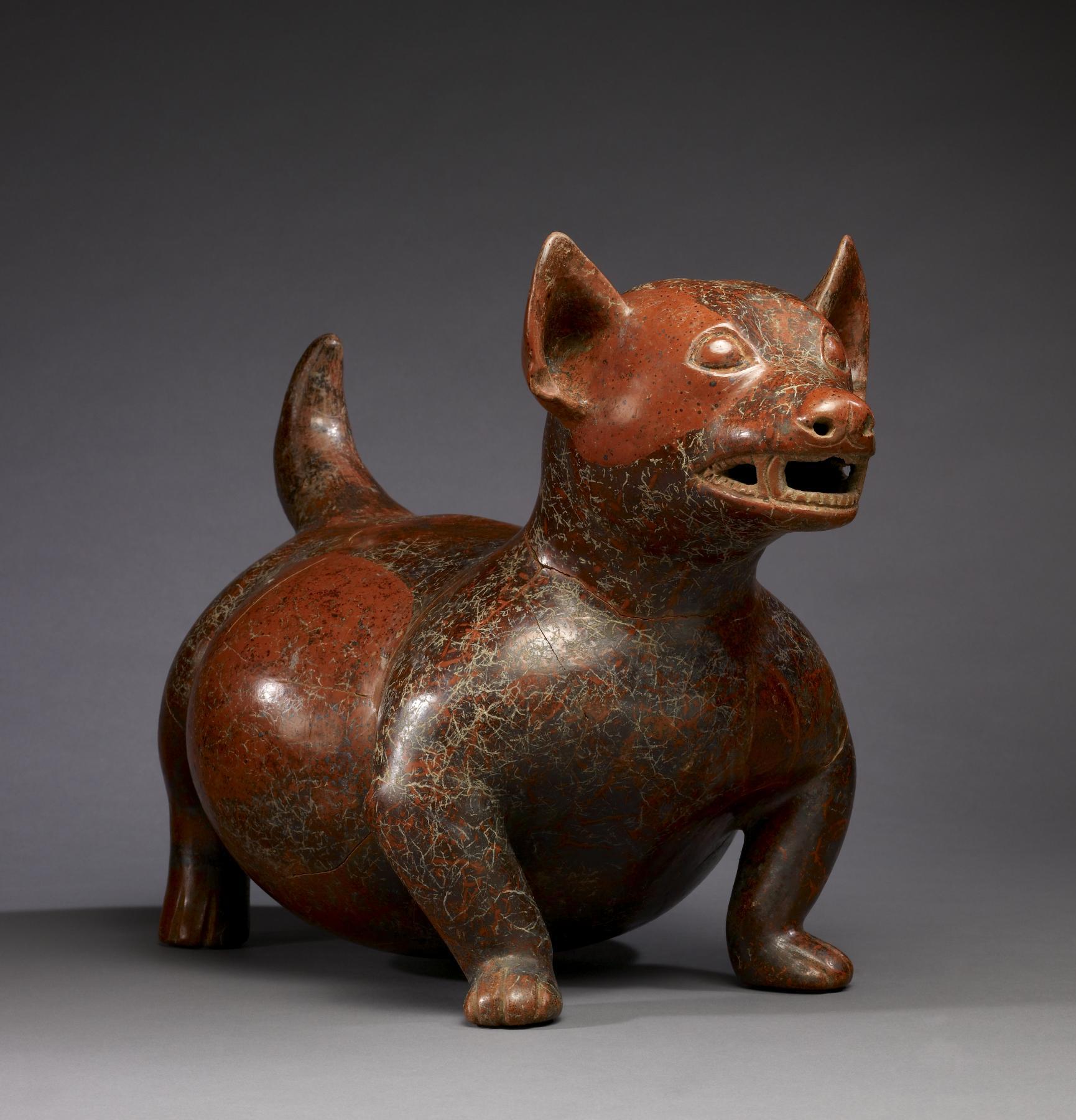Topic
Dogs have been our best friends for at least 23,000 years
Forum Posting
A Membership is required to post in the forums. Login or become a member to post in the member forums!
Home › Forums › Campfire › On the Web › Dogs have been our best friends for at least 23,000 years
- This topic has 8 replies, 6 voices, and was last updated 3 years, 2 months ago by
 Eric Blumensaadt.
Eric Blumensaadt.
-
AuthorPosts
-
Feb 3, 2021 at 6:48 pm #3697242
“They accompanied the first people to set foot in the Americas.”
Interesting Ars Technica story.
Feb 4, 2021 at 7:47 am #3697313Interesting. There was no explanation of how today those old haplogroups are possibly only found in chihuahuas (!!) and coon dogs, which is puzzling, I guess, only because of how far down the evolutionary line the little yappers seem from their ancestral wolves.
Keeping the origins of our relationship with dogs in mind is likely important in how we relate to our buddies on a daily basis. Particularly with the breed of dog you have!Feb 4, 2021 at 8:21 am #369731923,000+ years? You know, that article makes some very serious implications about the age and roundness of our 6,000 year-old flat planet…
< insert Yao Ming Face here >
But on a serious note: Katt, I think the answer to how the indigenous haplotypes are only found in selected groups was implied by the author positing that indigenous canines were targeted by European diseases and predation, and then simply replaced by the new lineages of European dogs. There’s no citation for that claim, but it’s certainly plausible in a logical way because we know it happened with indigenous peoples, and because we humans simply cannot let anything remain unf*cked-with. Also…
…only because of how far down the evolutionary line the little yappers seem from their ancestral wolves.
…just a quick point of clarification, here: chihuahuas have evolved, yes, but not through a process of natural selection. They have changed over time due to selective breeding, which is a rapid form of artificial selection which has changed them quite significantly over a very short time, because…wait, I already covered that. Le sigh.
Feb 4, 2021 at 8:25 am #3697322“chihuahuas have evolved, yes, but not through a process of natural-selection.”
ha ha for sure. Good catch!
one of the mishaps when we humans do things for form vs function . Even the form is questionable though ;)
Feb 4, 2021 at 9:40 am #3697345I’ll go on the record right now in regards to my questioning of everything that describes chihuahua-form. And I should correct myself in saying that they’ve mostly evolved through artificial selection; I’m not sure that there is any way to completely negate the effects of natural selection within a species.
Feb 4, 2021 at 7:11 pm #3697469Have you no hearts?

My hunch was right…Coming from ancient Mexico, some wiki searching states the chihuahua, like the xoloitzcuintli (a friend owns one of these, VERY weird dog), maintains a relatively high degree of pre-colonial (non-European) DNA.
 Feb 4, 2021 at 8:23 pm #3697472
Feb 4, 2021 at 8:23 pm #3697472Ummm….I read somewhere that chihuahuas were bred to be food. The canine equivalent of a chicken.
Can’t find it now, but several months ago I also read an interesting article describing the physiological differences that have evolved between modern dogs and their wolf ancestors. In particular, modern dogs have muscles above their eyes that let them move their brows and eyelids expressively, like guilt, sadness, surprise or anger, muscles which wolves do not have at all. So we selected for those traits that helped us understand them.
Same with barking. Wolves don’t do it. But dogs that bark warnings of things they can hear, smell or see that we can’t are a great alarm system, and barking is also great for locating where they have cornered or treed an animal being hunted.
As was said above, we pretty much shape everything around us to suit us.
But with dogs I think it has in some ways brought us closer, at least in the sense of relating to each other emotionally. Anyone who has owned a dog knows this. I had no idea about the relationship, the bond, between a human and a dog until I “owned” one. They can read our feelings, and we can read theirs. They are family. And I am in awe of their loyalty, bravery, and love for their pack. We could learn a lot.
“I wish I was the man my dog thinks I am”
Feb 4, 2021 at 8:25 pm #3697473Have you no hearts?
Just one, but it’s reserved for my bunny.
Feb 6, 2021 at 12:02 am #3697697“TP Man”, Good topic. A NOVA documentary on the ancient domestication of wolves showed, using caged foxes being raised for their fur, that the”friendliest” foxes, when bred together produced even friendlier offspring which were easily domesticated.
So that idea of “friendlier” wolves is very likely exactly what happened at the end of the Ice Age. I’m SO happy that happened because I think the dog/mankind connection is amazingly strong. Dogs not only show love for men, women (and kids especially) but they will most often sacrifice their lives protecting them.
I love dogs and think they are often really funny in their interactions with us. Playing with them and watching their genuine emotions displayed, joy, rambunctious play, grieving, cuddling, begging, and, as mentioned, protecting – all of this shows us their range of emotions. DOGS! WOW!
-
AuthorPosts
- You must be logged in to reply to this topic.
Forum Posting
A Membership is required to post in the forums. Login or become a member to post in the member forums!
Our Community Posts are Moderated
Backpacking Light community posts are moderated and here to foster helpful and positive discussions about lightweight backpacking. Please be mindful of our values and boundaries and review our Community Guidelines prior to posting.
Get the Newsletter
Gear Research & Discovery Tools
- Browse our curated Gear Shop
- See the latest Gear Deals and Sales
- Our Recommendations
- Search for Gear on Sale with the Gear Finder
- Used Gear Swap
- Member Gear Reviews and BPL Gear Review Articles
- Browse by Gear Type or Brand.




